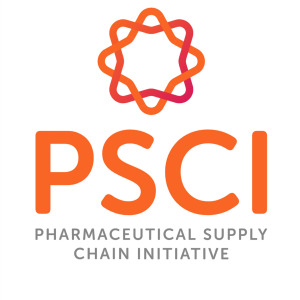PSCI launches progressive position on the use of Horseshoe Crabs

A quarterly series of articles about responsible supply chain management from the PSCI.
Horseshoe Crabs are an ancient group of crab species that have been around for more than 400 million years. Their blood has the remarkable property of indicating certain types of endotoxins.
For this reason, it has been harvested by the medical and pharma industries to use as a test for these harmful compounds. Endotoxin testing using approved methods is a key demand of the regulators who authorise pharmaceutical development and manufacturing.
While this process does not require the death of the animal, there are still questions over possible animal welfare, biodiversity, and sustainability impacts from the collection of these materials from populations of wild crabs. Of the three affected species of Horseshoe Crabs across the USA and Asia, one Asian species is listed as endangered, with concerns over the other Asian species where data is deficient.
The connection between the Horseshoe Crab species and the pharmaceutical sector does highlight the importance of biodiversity for human health and acts an excellent example of interdependence between medicine and biodiversity. It also illustrates the complexity of biodiversity-related sourcing in a regulated industry.
However, it also emphasizes the need for the industry to take an active position, and so the Pharmaceutical Supply Chain Initiative (PSCI) has launched our progressive position paper on what we believe to be good practice for the use of Horseshoe Crab blood within the pharmaceutical industry.
“The PSCI is releasing this position paper to encourage our members to protect the endangered species, seek out alternatives to these materials, and to adopt an intentional approach to sourcing where it remains necessary. Our commitment is to work together now, to drive this transition towards a long-term sustainable position and to play our part in protecting these remarkable species.”
– A spokesperson for the PSCI.
Representing 75 of the world’s largest pharmaceutical companies, the PSCI will encourage its members to commit to no further collection from endangered species, minimising the use of these materials, and sharing information to understand the surrounding animal welfare and conservation questions.
While this paper is not a membership requirement for the PSCI, it does outline the organisation’s views on good practice as it continues its commitment to the protection of all endangered species. It is important the industry has a strategy for reducing its dependence on Horseshoe Crab-derived products, and the PSCI is committed to working with its members to facilitate their progress and report the position across the whole industry.
Read more via the button below.

Related News
-
News CPHI Podcast Series: The power of proteins in antibody drug development
In the latest episode of the CPHI Podcast Series, Lucy Chard is joined by Thomas Cornell from Abzena to discuss protein engineering for drug design and development. -
News Amgen sues Samsung biologics unit over biosimilar for bone disease
Samsung Bioepis, the biologics unit of Samsung, has been issued a lawsuit brought forth by Amgen over proposed biosimilars of Amgen’s bone drugs Prolia and Xgeva. -
News CPHI Podcast Series: Why we need to consider women in clinical trials
The latest episode of the CPHI Podcast Series with Lucy Chard covers women's health, specifically women's representation in clinical trials, the associated bias, and the impacts on health for this population. -
News US FDA does not approve MDMA therapy for PTSD, requests more data
The MDMA-based therapeutic developed by Lykos Therapeutics, a California-based Public Benefit Corporation (PBC), has been reviewed and unapproved by the US FDA. The regulator has requested additional phase III trial data for further safety and efficacy... -
News Novartis and Viatris latest facing lawsuit over HeLa cell misuse
Global pharmaceutical companies Novartis and Viatris are the latest hit with a lawsuit claim pertaining to alleged misuse of the ‘HeLa’ cell line from the estate of woman whose cancerous tissue cells were taken without consent. -
News Sanofi invests billions into Frankfurt insulin production site
French pharmaceutical company Sanofi have announced an investment of EUR1.3 billion at their existing BioCampus site in Frankfurt am Main for the expansion of insulin production. -
News Novel oral Type 1 diabetes drug gains US FDA IND designation
A University of Alabama at Birmingham startup has gained FDA clearance for Investigational New Drug clinical trials for an oral Type 1 diabetes drug, a milestone for diabetes treatment. -
News A Day in the Life of a Vice President in R&D & Engineering
In the Day in the Life of Series, we've already had the chance to get to know a range of people in various roles in the pharma industry. In the latest interview we get a glimpse into the R&D side of things from Jennifer Sorrells, Vice Presiden...
Position your company at the heart of the global Pharma industry with a CPHI Online membership
-
Your products and solutions visible to thousands of visitors within the largest Pharma marketplace
-
Generate high-quality, engaged leads for your business, all year round
-
Promote your business as the industry’s thought-leader by hosting your reports, brochures and videos within your profile
-
Your company’s profile boosted at all participating CPHI events
-
An easy-to-use platform with a detailed dashboard showing your leads and performance

.png)

.png)
.png)
.png)
.png)
